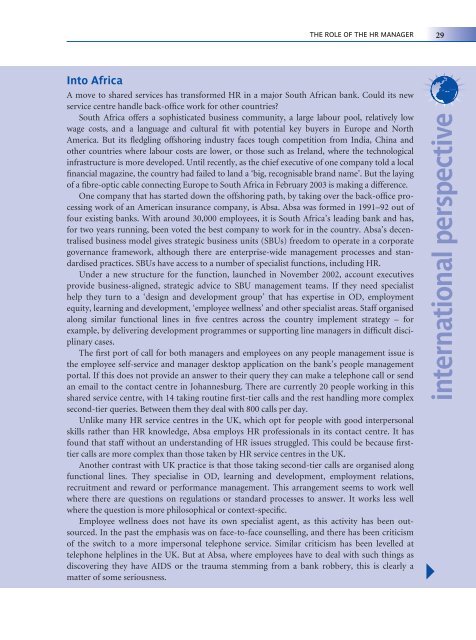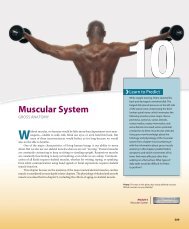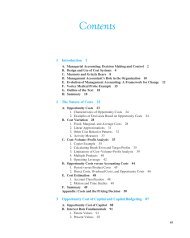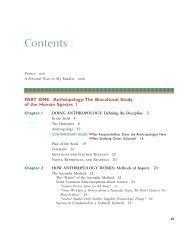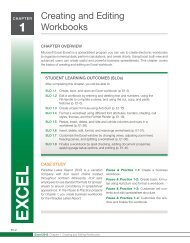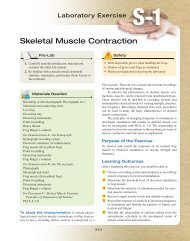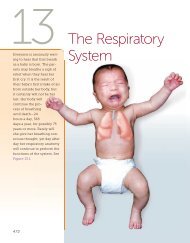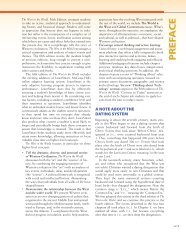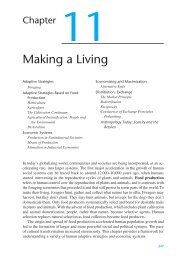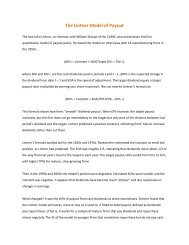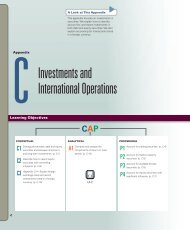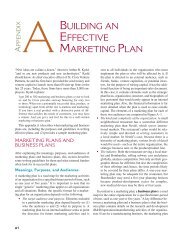The role of human resource management
The role of human resource management
The role of human resource management
You also want an ePaper? Increase the reach of your titles
YUMPU automatically turns print PDFs into web optimized ePapers that Google loves.
Into Africa<br />
THE ROLE OF THE HR MANAGER 29<br />
A move to shared services has transformed HR in a major South African bank. Could its new<br />
service centre handle back-<strong>of</strong>fice work for other countries?<br />
South Africa <strong>of</strong>fers a sophisticated business community, a large labour pool, relatively low<br />
wage costs, and a language and cultural fit with potential key buyers in Europe and North<br />
America. But its fledgling <strong>of</strong>fshoring industry faces tough competition from India, China and<br />
other countries where labour costs are lower, or those such as Ireland, where the technological<br />
infrastructure is more developed. Until recently, as the chief executive <strong>of</strong> one company told a local<br />
financial magazine, the country had failed to land a ‘big, recognisable brand name’. But the laying<br />
<strong>of</strong> a fibre-optic cable connecting Europe to South Africa in February 2003 is making a difference.<br />
One company that has started down the <strong>of</strong>fshoring path, by taking over the back-<strong>of</strong>fice processing<br />
work <strong>of</strong> an American insurance company, is Absa. Absa was formed in 1991–92 out <strong>of</strong><br />
four existing banks. With around 30,000 employees, it is South Africa’s leading bank and has,<br />
for two years running, been voted the best company to work for in the country. Absa’s decentralised<br />
business model gives strategic business units (SBUs) freedom to operate in a corporate<br />
governance framework, although there are enterprise-wide <strong>management</strong> processes and standardised<br />
practices. SBUs have access to a number <strong>of</strong> specialist functions, including HR.<br />
Under a new structure for the function, launched in November 2002, account executives<br />
provide business-aligned, strategic advice to SBU <strong>management</strong> teams. If they need specialist<br />
help they turn to a ‘design and development group’ that has expertise in OD, employment<br />
equity, learning and development, ‘employee wellness’ and other specialist areas. Staff organised<br />
along similar functional lines in five centres across the country implement strategy – for<br />
example, by delivering development programmes or supporting line managers in difficult disciplinary<br />
cases.<br />
<strong>The</strong> first port <strong>of</strong> call for both managers and employees on any people <strong>management</strong> issue is<br />
the employee self-service and manager desktop application on the bank’s people <strong>management</strong><br />
portal. If this does not provide an answer to their query they can make a telephone call or send<br />
an email to the contact centre in Johannesburg. <strong>The</strong>re are currently 20 people working in this<br />
shared service centre, with 14 taking routine first-tier calls and the rest handling more complex<br />
second-tier queries. Between them they deal with 800 calls per day.<br />
Unlike many HR service centres in the UK, which opt for people with good interpersonal<br />
skills rather than HR knowledge, Absa employs HR pr<strong>of</strong>essionals in its contact centre. It has<br />
found that staff without an understanding <strong>of</strong> HR issues struggled. This could be because firsttier<br />
calls are more complex than those taken by HR service centres in the UK.<br />
Another contrast with UK practice is that those taking second-tier calls are organised along<br />
functional lines. <strong>The</strong>y specialise in OD, learning and development, employment relations,<br />
recruitment and reward or performance <strong>management</strong>. This arrangement seems to work well<br />
where there are questions on regulations or standard processes to answer. It works less well<br />
where the question is more philosophical or context-specific.<br />
Employee wellness does not have its own specialist agent, as this activity has been outsourced.<br />
In the past the emphasis was on face-to-face counselling, and there has been criticism<br />
<strong>of</strong> the switch to a more impersonal telephone service. Similar criticism has been levelled at<br />
telephone helplines in the UK. But at Absa, where employees have to deal with such things as<br />
discovering they have AIDS or the trauma stemming from a bank robbery, this is clearly a<br />
matter <strong>of</strong> some seriousness.<br />
international perspective


